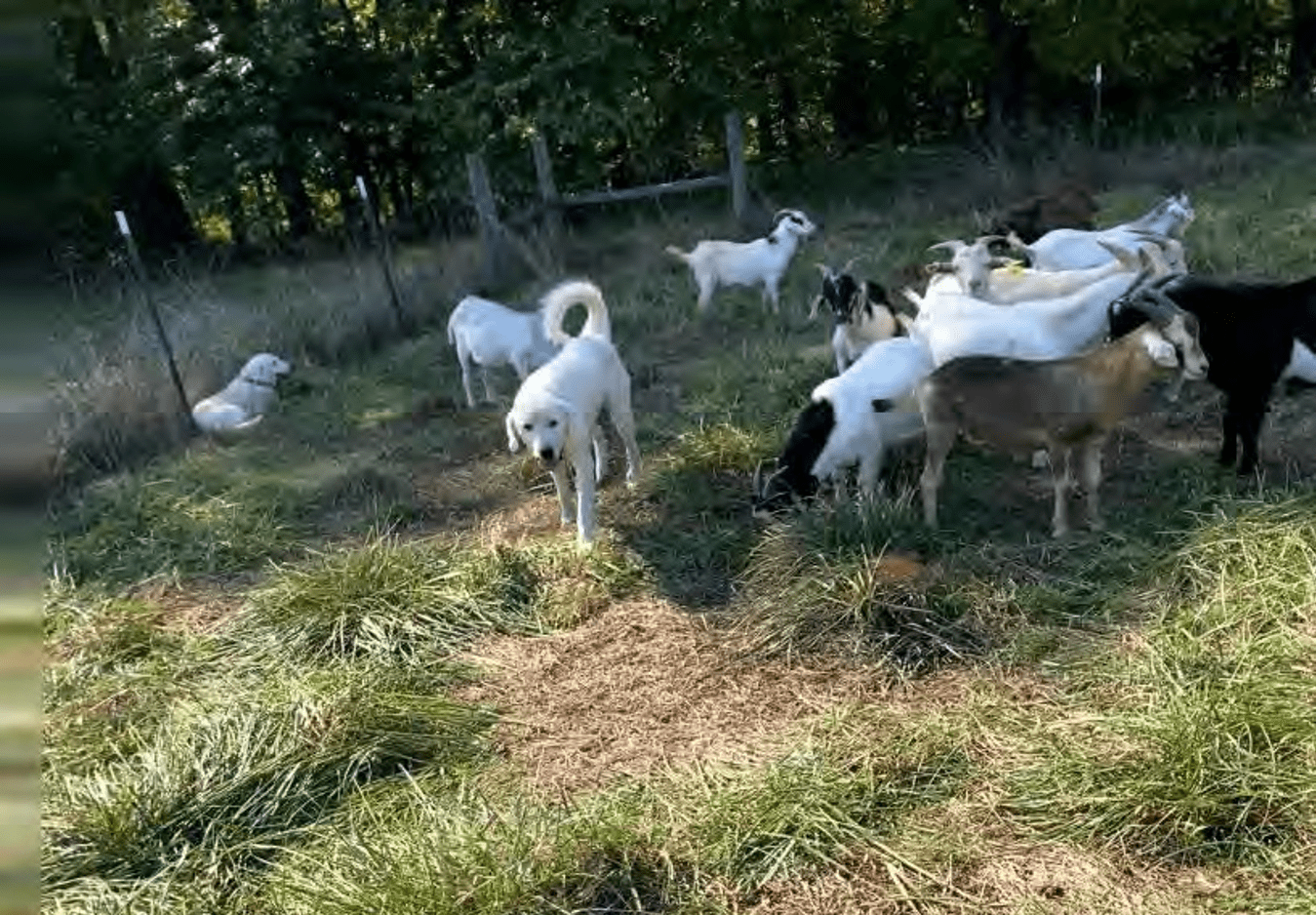Animals

Small ruminants, such as sheep and goats are gaining traction in the United States as newer and revitalized markets appear. With globalization, access to foreign markets has increased the profitability of these animals. Profitability, however, is lost if sheep and goat predators are not controlled.
Major predators for sheep and goats are coyotes and dogs, but for younger animals, foxes, bobcats, vultures, or even raccoons can be problems as well. Killing these predators in high numbers will not solve the problem and creates an imbalance in nature. Deer and wild hogs, for example, will flourish without natural predators. Also, killing a few predators will not stop other predators from making a quick meal of your livestock. Better alternatives to solve this problem are proper fencing and guardian animals.
Strategies for Predator Control
Fencing
- The best fencing is woven wire used alongside electrical wire placed on the interior and exterior of the fence as well as near the top and bottom of the fence. Electrical wire will keep predators from climbing over or digging under your fence and deter your animals from doing the same. In addition, space ground rods 10 feet apart and 6 feet deep.
- Another option is an electric netting fence surrounding the property.
- Lastly, you can utilize an existing fence by adding a strand of electric wire across the bottom, middle, and top of the fence. When using an electric fence, spray the grass and brush underneath the fence to avoid causing a short in your electric wire.
Guardian Animals
Donkeys, llamas, or guard dogs are the most recommended animals to guard sheep and goats.
- Donkeys are the least expensive of the recommended guard animals. They are also typically the strongest and have excellent hearing with ears that rotate. Donkeys innately dislike canines and will chase, stomp, bite, and kick canines that are around provoking livestock. They may follow your animals, but it is best to test them out with a more confined group over 4-6 weeks to ensure they bond with the livestock.
Donkeys can get a hoof disease (founder) called laminitis, which could be costly to treat. Foundering is a rotation of the bone in the hoof called the coffin bone. This is due to the animals eating a lot of fresh grass too quickly after a period of mostly eating hay, low-quality grass, or grain. Once a donkey founders, it will most likely continue to founder even if the conditions seem better. It is best to remove the donkey during lambing or kidding to prevent accidental injuries.
- Llamas should not have the medical risks associated with donkeys. They are slightly more expensive, however, and will require more maintenance than typical small ruminant care practices. For example, llamas need to be sheared annually or have their hooves trimmed.
Llamas also have an innate dislike of canines and will chase them away from the flock or herd. They will naturally follow your flock or herd, so there is no need for a testing period.
- Guard dogs are considered the best, are the most expensive option, and will require specialized training to guard the herd. Guard dogs need minimal human contact after 8 weeks. Large breeds such as the Great Pyrenees make great guard dogs. Dogs will not only stay with the flock or herd but will consistently walk the perimeter of the pasture to check for potential danger.
Conclusion
Guardian animals in conjunction with proper fencing can greatly increase the success against common predators of your livestock. While killing a single predator might seem like the best option, it does not solve all predatory attacks. Predators are opportunistic hunters and if you give them the opportunity, they will pounce.
Visit www.aces.edu for additional information about sheep and goat production management.

